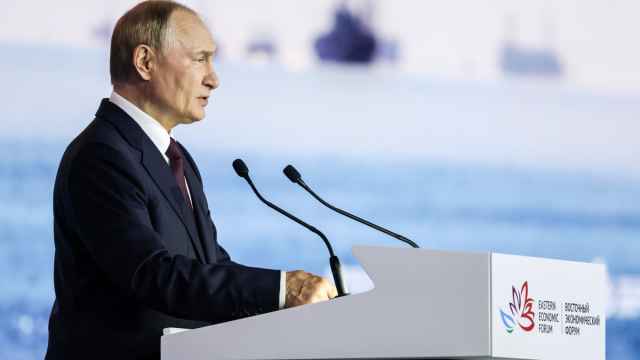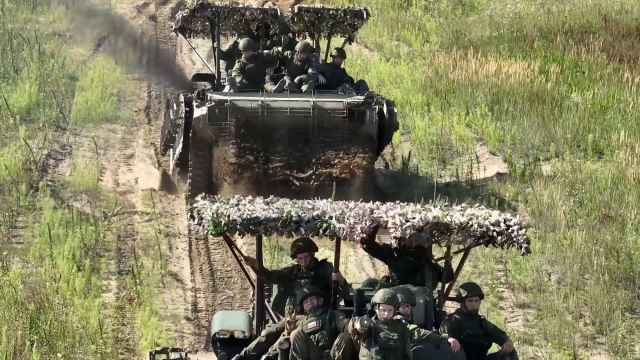YOKOHAMA, Japan — Japan's prime minister strongly protested President Dmitry Medvedev's visit to a disputed island and said in a meeting on the sidelines of a Pacific Rim leaders' conference Saturday that the two nations must build mutual trust.
Medvedev reportedly responded that he would return to the island whenever he pleases.
Prime Minister Naoto Kan told Medvedev that the Nov. 1 visit was unacceptable and inflamed the feelings of the Japanese people, Japanese Deputy Chief Cabinet Secretary Tetsuro Fukuyama said. Kan said the two nations, which have never signed a treaty formally ending their World War II hostilities because of the territorial dispute, must work to develop trust.
The talks Saturday — which Japanese officials said began in a "tense mood" — were their first since Medvedev's trip to the island, known as Kunashiri in Japan and Kunashir in Russia. Russia captured the island and several others in the closing days of World War II.
The meeting also comes as Japan's relations with China have soured over another territorial dispute involving islands to the south.
Fukuyama said Medvedev told Kan that bolstered economic relations would improve the atmosphere between the two nations.
Russian media portrayed Medvedev's reaction as forceful. RIA-Novosti reported that Medvedev underlined Russia's claims to the islands and said he reserves the right to visit whenever he chooses.
"Kan expressed regret about President Dmitry Anatolyevich Medvedev's visit to the island of Kunashir, but our position is as follows: The president will decide for himself which region of Russia to visit," Foreign Minister Sergei Lavrov was quoted as saying.
"It is our territory, and that's how it will stay," he said. "Our Japanese colleagues, I hope, will adopt a more appropriate attitude toward this."
Lavrov said the two agreed that economic ties should be put ahead of the territorial spat.
Kan, however, accepted an invitation to visit Russia, Lavrov said.
Underscoring efforts to develop economic ties despite Japan's unhappiness with Medvedev, the two sides joined in signing a $1 billion deal to build a large fertilizer plant at Mendeleyevsk, Tatarstan.
The deal with Japan's Mitsubishi Heavy Industries, Sojitz Corp. and China National Chemical Engineering Corp. calls for a factory that will produce both ammonia and methanol from natural gas, using technologies from Denmark and the Netherlands, the companies said in a statement.
Oleg Deripaska, CEO of aluminum maker RusAl, said the island spat had so far had no impact on the Russian-Japanese economic relationship, adding that Japanese companies were looking for contracts in Russia, Reuters reported.
"In today's world, Japan needs Russia and Russia needs Japan as a source for technology and a source of demand for our goods. This [dispute] is political noise made for domestic consumption," Deripaska told reporters in Yokohama.
A Message from The Moscow Times:
Dear readers,
We are facing unprecedented challenges. Russia's Prosecutor General's Office has designated The Moscow Times as an "undesirable" organization, criminalizing our work and putting our staff at risk of prosecution. This follows our earlier unjust labeling as a "foreign agent."
These actions are direct attempts to silence independent journalism in Russia. The authorities claim our work "discredits the decisions of the Russian leadership." We see things differently: we strive to provide accurate, unbiased reporting on Russia.
We, the journalists of The Moscow Times, refuse to be silenced. But to continue our work, we need your help.
Your support, no matter how small, makes a world of difference. If you can, please support us monthly starting from just $2. It's quick to set up, and every contribution makes a significant impact.
By supporting The Moscow Times, you're defending open, independent journalism in the face of repression. Thank you for standing with us.
Remind me later.





